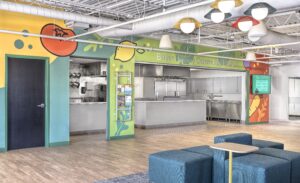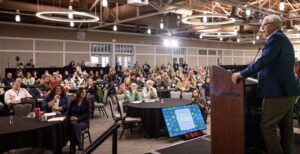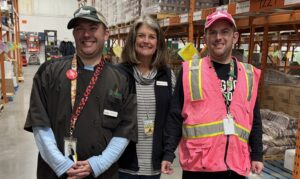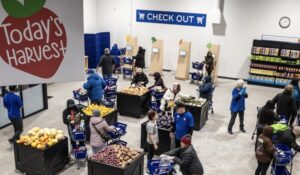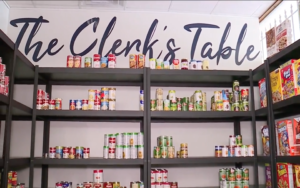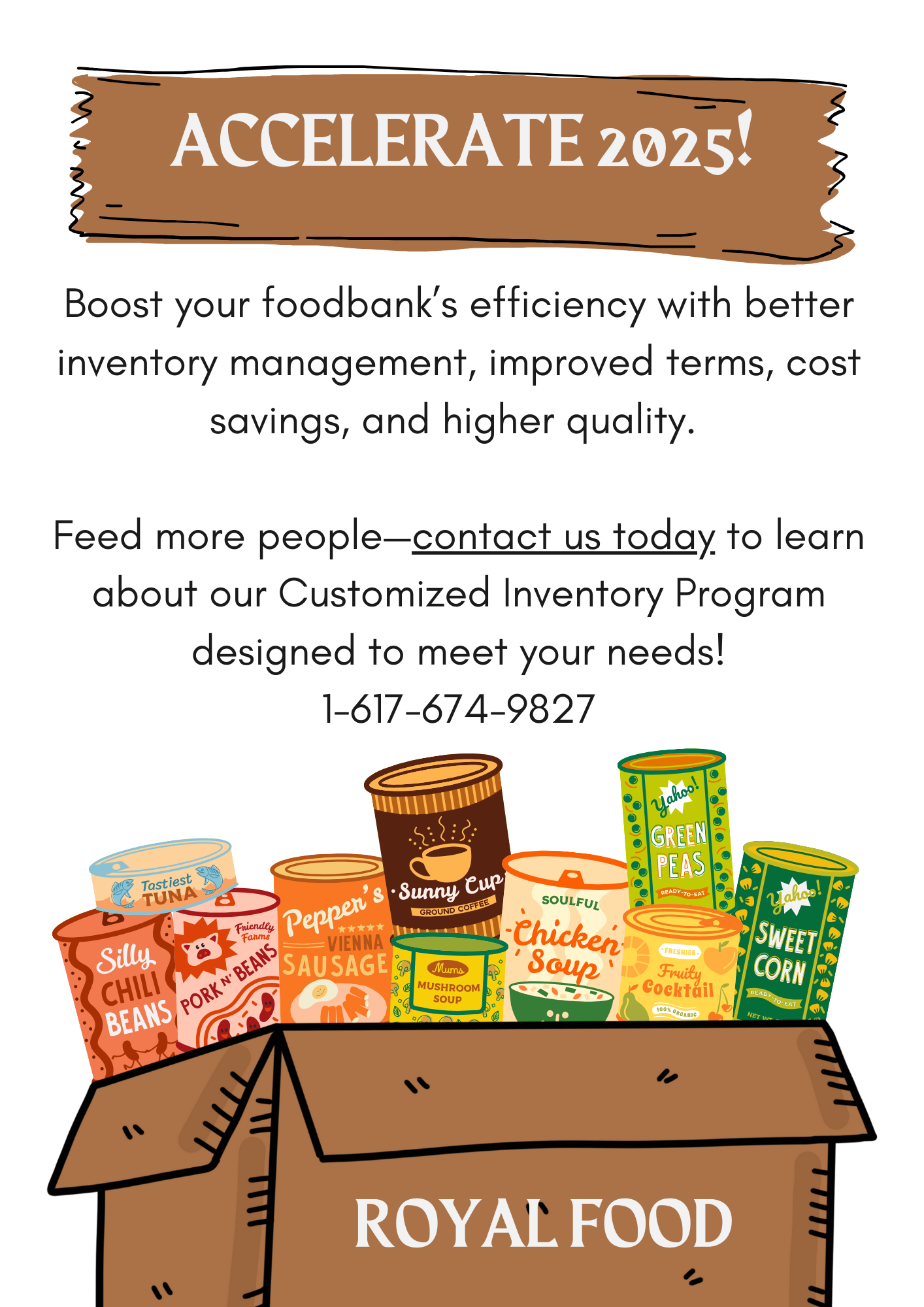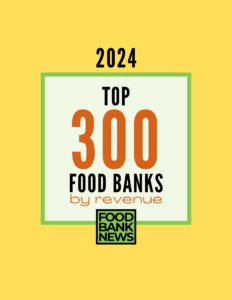As the government shutdown grinds on, strategies for serving furloughed employees are top of mind for the nation’s food banks, even as uncertainty mounts over the future of SNAP payments.
Many food banks are treating the slowly unfolding crisis of the shutdown much as they would a natural disaster — by issuing all-points alerts that food is available and in many cases setting up pop-up food-distribution sites. But the nature of this particular disaster has also required some special handling.
For one, most furloughed workers have little familiarity with how charitable food system operates. Not only do they have plenty of questions on how and where to get food, but unlike victims of natural disasters, many may be resistant to the idea that they need help in the first place.
Washington D.C., the epicenter of the shutdown, is an exception, with the Capital Area Food Bank expecting to provide hundreds of thousands of additional meals this month and the sense of crisis palpable. But in other areas of the country, hunger caused by the shutdown may feel more invisible.
“There’s a tremendous barrier between the individual affected by the shutdown and that person asking for help,” said Eric Cooper, president and CEO of the San Antonio Food Bank.
In recognition of that barrier, the food bank is tweaking its messaging to furloughed workers by referring to its food distribution sites as care centers, rather than food banks. And at the sites, it is directing people to care packages, rather than food boxes. “There’s some additional sensitivity,” Cooper said.
Other food banks are also taking steps to ensure food reaches as many furloughed workers as possible. The Greater Chicago Food Depository, for example, is asking the community agencies within its network of more than 700 to relax requirements they might typically impose, say that a person live within a certain geographic area. “Any federal employee can go to any pantry and not be turned away,” said Greg Trotter, senior manager of public relations and content at GCFD. “We’ve emphasized that to our partner agencies.”
The Central Pennsylvania Food Bank has sought to put at ease people who are concerned that they might be taking away food from others who may not have a job at all, said Joe Arthur, executive director. “In our messaging, we are being welcoming,” he said. “We’re saying we have plenty of food and it’s really good food, and we’re hitting that drum over and over.”
The stigma attached to receiving food became apparent at a distribution the Central Pennsylvania Food Bank set up at a nearby federal prison. About 200 prison employees, who are required to come to work during the shutdown without pay, accepted food during the first two days of service. But a good many of them — up to 30 — chose to travel to a separate distribution site to avoid having to pick up food at work, Arthur said.
As it happens, the timing of the shutdown is fortuitous. Many food banks have significant additional stocks of government food on hand because of the administration’s effort to bail out farmers hurt by its trade tariffs. The government is in the midst of buying up an extra $1.2 billion of food, adding 950 million pounds to the roughly 700 million that typically flows annually from the USDA to food banks.
The Central Pennsylvania Food Bank took as much of the trade-policy government food “as we could possibly handle and then some,” Arthur said, which positions it well for an expected increase in demand from furloughed workers. “We just need people to come forward,” he said.
At its two warehouse hubs, which the food bank has turned into temporary food distribution points, the Central Pennsylvania Food Bank served about 40 people on its first day of distribution. It also hosted a lot of media that day, so Arthur is expecting attendance to ramp up as awareness increases.
Of course, the longer the shutdown goes on, the greater demand from federal workers is expected to be. If the unthinkable happens and SNAP is not funded for March, then demand would quickly exceed food-bank supply. “A disruption to SNAP would be unprecedented and devastating,” said Trotter of GCFD. “There’s no way we could fill that void.”

